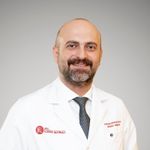























Gastric Bypass
In gastric bypass surgery; most of the stomach is eliminated. The stomach is connected to the esophagus from above and to the small intestine from below. In gastric bypass surgery, the small intestine is tied after the stomach's 25-30 ml portion after the esophagus. In this way, the stomach volume is reduced to 25-30 ml. Almost all digestive products that normally pass from the stomach to the intestine are absorbed back into the body. Water, sugar, oils, minerals, and vitamins are among these substances. In gastric bypass surgery, the stomach is reduced and the space required for re-absorption from the intestines is reduced and substances such as sugar and fat are prevented from entering the body. Although there are some advantages of gastric bypass surgery, the disadvantage is that more mineral and vitamin deficiencies can be seen in patients after sleeve gastrectomy.
This is because that the absorption of nutrients from the small intestine is prevented by gastric bypass surgery. Therefore, people should be monitored more closely for these vitamins and trace element deficiencies after surgery. There are types of gastric bypass surgeries such as Roux-y gastric bypass and mini-gastric bypass and various operations such as a duodenal switch that can be added to these. All are based on the mechanisms of shrinking the stomach and reducing absorption from the small intestine. The specialist doctors of our obesity center, and especially the general surgeon who is the team leader, will decide together with you which surgery will be suitable for you.
What does Group Florence Nightingale Hospitals offer patients?
How many specialists are there and what accreditation's have been awarded to Group Florence Nightingale Hospitals?
As a prime surgical procedure designed to help with weight loss, Gastric Bypass Surgery can be a lifestyles-changing decision with varying consequences. Before thinking about this type of process, it's vital to apprehend the risks, advantages, feasible complications, and the way it can affect your great of life.
Patients need to apprehend the rigorous nutritional modifications after the surgical treatment. Consistent consultation and observe-up with healthcare specialists also are essential for achieving the highest quality results.
This process is often executed while different techniques of weight reduction, like food plans, exercise, and medication, have no longer labored for individuals with severe weight problems instances. Gastric Bypass Surgery is likewise a capability remedy for health situations associated with weight problems, together with diabetes, heart disease, hypertension, and sleep apnea.
Recovery instances for Gastric Bypass Surgery tactics can vary broadly among people, depending on factors like age, general fitness, and response to surgical operation. In preferred, preliminary recovery, which includes resuming regular everyday activities, might also take several weeks. However, full restoration encompassing substantial weight loss, lifestyle changes, and health improvements may take anywhere from 12 to 18 months. It is likewise critical for them to frequently go to healthcare carriers for tracking and follow-ups.
This Gastric Bypass Surgery is historically known for its excessive achievement rates. A massive quantity of sufferers lose an extensive quantity of their extra weight – on occasion 60–80% – inside 12 to 18 months of the manner. This weight loss can also result in improvements in weight problems-associated conditions like coronary heart disorder, hypertension, sleep apnea, and type 2 diabetes.
However, the success charge drastically depends on an affected person's adherence to the important lifestyle changes put up during the surgery. Regular uptake of a balanced weight-reduction plan, physical workout, and regular follow-ups with healthcare experts are critical for short-term weight loss and long-time period weight management.












































Gastric Bypass
In gastric bypass surgery; most of the stomach is eliminated. The stomach is connected to the esophagus from above and to the small intestine from below. In gastric bypass surgery, the small intestine is tied after the stomach's 25-30 ml portion after the esophagus. In this way, the stomach volume is reduced to 25-30 ml. Almost all digestive products that normally pass from the stomach to the intestine are absorbed back into the body. Water, sugar, oils, minerals, and vitamins are among these substances. In gastric bypass surgery, the stomach is reduced and the space required for re-absorption from the intestines is reduced and substances such as sugar and fat are prevented from entering the body. Although there are some advantages of gastric bypass surgery, the disadvantage is that more mineral and vitamin deficiencies can be seen in patients after sleeve gastrectomy.
This is because that the absorption of nutrients from the small intestine is prevented by gastric bypass surgery. Therefore, people should be monitored more closely for these vitamins and trace element deficiencies after surgery. There are types of gastric bypass surgeries such as Roux-y gastric bypass and mini-gastric bypass and various operations such as a duodenal switch that can be added to these. All are based on the mechanisms of shrinking the stomach and reducing absorption from the small intestine. The specialist doctors of our obesity center, and especially the general surgeon who is the team leader, will decide together with you which surgery will be suitable for you.
What does Group Florence Nightingale Hospitals offer patients?
How many specialists are there and what accreditation's have been awarded to Group Florence Nightingale Hospitals?






















Gastric Bypass
In gastric bypass surgery; most of the stomach is eliminated. The stomach is connected to the esophagus from above and to the small intestine from below. In gastric bypass surgery, the small intestine is tied after the stomach's 25-30 ml portion after the esophagus. In this way, the stomach volume is reduced to 25-30 ml. Almost all digestive products that normally pass from the stomach to the intestine are absorbed back into the body. Water, sugar, oils, minerals, and vitamins are among these substances. In gastric bypass surgery, the stomach is reduced and the space required for re-absorption from the intestines is reduced and substances such as sugar and fat are prevented from entering the body. Although there are some advantages of gastric bypass surgery, the disadvantage is that more mineral and vitamin deficiencies can be seen in patients after sleeve gastrectomy.
This is because that the absorption of nutrients from the small intestine is prevented by gastric bypass surgery. Therefore, people should be monitored more closely for these vitamins and trace element deficiencies after surgery. There are types of gastric bypass surgeries such as Roux-y gastric bypass and mini-gastric bypass and various operations such as a duodenal switch that can be added to these. All are based on the mechanisms of shrinking the stomach and reducing absorption from the small intestine. The specialist doctors of our obesity center, and especially the general surgeon who is the team leader, will decide together with you which surgery will be suitable for you.
What does Group Florence Nightingale Hospitals offer patients?
How many specialists are there and what accreditation's have been awarded to Group Florence Nightingale Hospitals?
CONTACT SUCCESSFUL